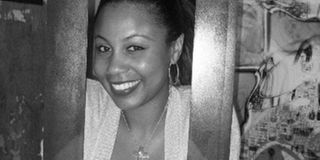Writing from the diaspora

What you need to know:
When Women Waken Journal, Naturewriting.com, Kalahari Review and SIBYL Magazine. She and her husband reside in Germany.
How did you start writing?
Gloria Gonsalves is an author of eight books, three of which are children’s books. Some of her titles are : ‘Mists of Sense Require Fierce Poesy’ (Poetry, 2014); ‘Danloria’ (Children’s Fantasy, 2013); ‘The Wisdom Huntress’ (Narrations, 2012); ‘Swahili Folklore’ (Children’s fables, rhymes and songs, 2011); ‘I am Tausi’ (Memoir, 2009); ‘Diamonds Forever ‘(Children’s poetry, 2008); “MAHABA” and ‘Print In My Heart’ (Poetry, 2007); Emotional Turmoil (Poetry, 2006). She is also a contributing author/poet to online magazines, platforms and journals including Author House Author’s Digest,
When Women Waken Journal, Naturewriting.com, Kalahari Review and SIBYL Magazine. She and her husband reside in Germany.
How did you start writing?
My love for story books began during school years at Kifungilo Girls School, Lushoto. Being in a boarding school with a strict study regime, reading a novel was similar to committing a forbidden sin. And that excited me! Sometimes I was caught and the book was taken away from me as a punishment. It made me love books even more.
A breakthrough came when my English language teacher Mr Heri Kiluwa urged me to join a regional essay competition, since I loved books so much. I did and won a Bible. A second opportunity of writing came. With my teacher’s guidance I wrote my first ever drama play. It was performed when other schools visited us. Then I stopped writing.
Sixteen years later I began writing again. A series of events and feelings led me one day to simply sit down, switch on the computer and write. I wrote until all my emotions found a new home on the computer screen.
If you would have to drop poetry and do something else, what would it be?
I have always admired the illustrations done by children in all of my books. In the past three years, I have been procrastinating on the wish to learn how to draw. So this question has urged me to revisit that wish.
What is your writing process?
My mantra is, “Good or bad writing will hone your writing skill. Keep writing, even when not inspired.” This is an advice I give to myself and anyone else who asks. Also, I am not one who believes that a writer should stick to one genre only. Instead, I choose to juggle my creativity between different categories and writing styles as a source of fuelling my inspiration. Crafting poetry for adults and children, blogging about nature and flower arrangements, writing tales for children and adults, recalling my spiritual experiences, daring unpublished sizzlers, etc. is what I enjoy creating and no advice can make me do otherwise.
What can you say you learn from poetry
When I began writing poetry it was all about exhausting my spirit from ill feelings and emotions. I also avoided reading other poets for fear of having their writing influence mine.
As years went by, I learned different styles of poetry, particularly through creative writing events. Today I enjoy reading other poets too.
Poetry helps me understand life without a fee. Writing poems is a great way of nurturing my creative side. It is also a great way to be a discreet preacher, activist, retaliator, legislator and even a tart. I can be sensible or insensible: listening without being judged, confessing without a priest, sinning without committing, crying without tears, laughing but desperate, venting without confrontation, detoxing without dieting and a myriad of other things.
What challenges do you face as a female poet in the diaspora?
I can certainly say that being in the diaspora one has at times the challenge of fitting into a particular category. For example, there are competitions which are held for Africans, but in order to participate one has to be residing in Africa. On the other hand, some publishers hold a perception that an African has to write a particular kind of stories and poems. If she/ he decides to venture in a genre that is considered to be off with their race, then they might not be considered serious. This way of thinking trickles down to readers as well. I have occasionally heard from fellow Africans that my children’s book “Danloria” isn’t African.
So the challenge becomes, how does an African writer living in the diaspora get the freedom to write what they desire based on their experiences from Africa and abroad, or one of it only?
Does it make any sense to limit the muse with geographical boundaries? It is my opinion that publishers and those in the judging panels should let readers decide what they want to read instead of encouraging stereotype reading based on gender, race and geography.
What are your future plans?
First of all, to write more poetry with attention paid to Swahili and children’s poetry. I would also like to excel in the world of short stories. Above all, a comment I read recently about someone asking if Tanzania has writers has fuelled my literary engine to show the world that we exist!




